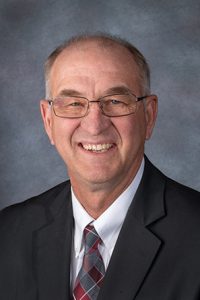Funds sought for EMS training, reporting system
The Appropriations Committee heard testimony March 21 on a bill that would provide an ongoing infusion of state dollars to support Nebraska’s emergency service providers.

LB415, sponsored by Sen. Myron Dorn of Adams, would appropriate $1 million in general funds in fiscal year 2023-24 and FY2024-25 for the Emergency Medical Services Practice Act and the Statewide Trauma System Act. The bill states legislative intent that the appropriation be ongoing annually.
Dorn said the Legislature provided $20 million in American Rescue Plan Act funds last year for rural EMTs and another $5 million for equipment purchases. While those funds were appreciated, he said, more support is needed to help reimburse rural EMTs for initial training and continuing education.
“Nebraska is fortunate that we have volunteers who are willing to take hours and hours of training and testing to become emergency first responders,” Dorn said. “It is becoming more difficult, though, to find volunteers, partly because of the training requirements and associated costs.”
The bill also would increase the current general fund appropriation by $150,000 annually for the statewide patient care reporting system and trauma registry.
Dorn said the registry, which is used to improve patient care by helping EMS personnel learn from past emergency responses, is cumbersome and needs upgrading — which will cost between $8 million and $10 million.
Ansley EMS volunteer Mike Bailey testified in support of the bill. Nebraskans are passionate about volunteering in the emergency services field, he said, but the state does not do enough to assist them with the cost and strain that it puts on individuals.
“We owe it to the people who answer the call and take care of us,” Bailey said.
Marlene Bomar, testifying on behalf of the Nebraska Emergency Medical Services Association, also supported the proposal. Bomar, a Battle Creek EMT, said additional funding to update the trauma registry is “critically” important to save EMT provider time, noting that the current process can take up to an hour to complete.
Bomar said she has been a volunteer for 27 years and her husband for 46 years, and both have seen an increased need for support and stress management for EMTs.
“Over that time, we have seen the number of volunteers drop drastically,” she said. “And in that same time, the kinds of calls that we are asked to respond to have become much more complex.”
No one testified in opposition to LB415 and the committee took no immediate action on it.

